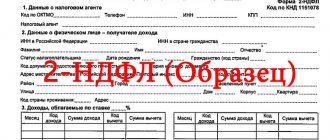The signing of a preliminary purchase and sale agreement is conditioned on the fact that the parties do not change their minds about selling and buying real estate. And if this happens, then if there is an agreement, force it to be done in court or, at least, demand a fine.
Let us simulate a situation in which such an agreement can be signed. Conventionally, you are selling an apartment. There was a buyer who liked it, but at the moment he does not have the full amount to sell the purchase. He is waiting for mortgage loan approval from the bank, and while his documents are being reviewed, there is a chance that you can sell the apartment to someone else. This is where the preliminary purchase and sale agreement comes into play. When registering it, both the seller (you) and the buyer promise each other, not in words, but in writing, to fulfill the conditions specified in the contract. This scheme looks convenient and does not seem to have any negative connotations or risks. But it is better to understand the possible nuances of this form of agreement.
It is important to remember that the preliminary agreement is not the main final agreement. That is, in such an agreement it is necessary to specify only the subject of the agreement. It can be compiled without even indicating the transaction price. However, lawyers advise playing it safe and spelling out in as much detail as possible such items as: cost, terms for concluding the main contract, and in general any other little things that may concern both parties. In case of a bad outcome (if the main agreement is not concluded), this will work to your advantage and simplify the same legal process.
"Underwater rocks"
- 1. “The preliminary agreement cannot guarantee the absence of problems. For example, this concerns the issue of a deposit. According to the Civil Code of the Russian Federation, a deposit is recognized as the amount transferred by one of the parties to account for the payments due to it under the concluded purchase and sale agreement to secure its execution. It turns out that it is possible to include a deposit in the preliminary agreement, but the law does not provide for the transfer of the deposit. Therefore, even in court, the seller will not be able to defend the opportunity not to return the deposit based on the preliminary agreement,” explains Anastasia Bobrova, consultant of the national project “Promoting the level of financial literacy of the population and the development of financial education in the Russian Federation”;
- 2. Be sure to indicate the validity period of the contract. If you don’t register it yourself, by law it will automatically be valid for 12 months. By the way! If the preliminary agreement is “failure”, you will only be able to sue 6 months after its expiration;
- 3. Deposit and advance payment. “The deposit is a guarantee of the conclusion of the main contract. It must be remembered that if the main contract is not concluded due to the fault of the buyer, then the deposit is not returned. And if the seller refuses the deal, then he is obliged to return the deposit in double amount,” notes Kirill Yusupov, lawyer at the Kuchembaev and Partners legal agency;
- 4. You will not be insured against the risk of a possible double sale. The preliminary agreement is drawn up without registration. If you encounter an unscrupulous seller who “stamped” such contracts, then you will have to seek compensation through the court;
- 5. In order not to accidentally discover that the property you want to purchase is rented out for a long term, for example, or is not encumbered by the rights of third parties, do not be lazy to make a request to the Unified State Register of Real Estate.
- • Register ownership of the apartments;
- • It is necessary to repay the mortgage, if the apartments were purchased with its help, and in general, remove all encumbrances.
In what cases is it needed?
A preliminary agreement is concluded not only when selling or buying real estate. The same type of agreement will be needed if hiring, renting, renting, or purchasing an apartment in installments between individuals is intended.
If you draw up such a document correctly, then it only brings advantages for both parties - here’s why:
- The preliminary agreement specifies the terms that you have already discussed, which means that neither party will be able to beat them. For example, if we agreed that an apartment would be purchased for 1 million rubles, that’s what the deal will cost, no more.
- A profitable option is here to stay. The seller or lessor, after signing the agreement of intent, no longer has the right to sell or rent the property to someone else. Although he can still do this, he will first have to terminate the agreement and pay a penalty.
- There will no longer be any catch with documents or registrations in the transaction. If the agreement states that by the date of the transaction everyone must be checked out of the apartment, then so be it. But if not, then terminate the contract and pay a penalty.
Letters of intent are applicable not only in the field of real estate. It can regulate the relationship between buyer and seller (or supplier) in any area of business. But, since there is no universal template for all cases, it is better to contact a lawyer to draw up the correct document.
What clauses must be in the contract?
The text of the agreement is not universal; it depends on the situation in respect of which the document is being drawn up. But the following points must be specified:
Dear readers! We cover standard methods for solving legal problems, but your case may be unique. We will help you find a solution to your problem for free
— simply call our legal consultant at:
+7 (495) 128-73-40 (Moscow)
+7 (812) 603-71-55 (Saint Petersburg)
8 (800) 302-33-75 (free call within Russia)
It's fast and free ! You can also quickly get an answer through the consultant form on the website.
- The subject of the agreement is in relation to what it is drawn up; from this it should be clear what terms of the transaction must be fulfilled by the participants, when, within what time frame.
- Description of the object. Characteristics of the apartment, address, number of floors, cadastral number. It should be clear from the description what kind of apartment is being sold, so that it can be replaced with another or simply confused.
- Deadlines. It is necessary to indicate for what period the preliminary agreement is concluded. If this is not done, then Article 429 of the Civil Code of the Russian Federation, paragraph 4, applies - without specifying a date, the agreement of intent is valid for 1 year from the moment of signing by the parties.
Additionally, the preliminary agreement may include the following:
- Making an advance or deposit. Amount, to whom it was transferred and for what.
- Conditions for accrual and payment of penalties.
- The procedure for making payments when concluding the main transaction.
In addition to the mandatory clauses, you can indicate any conditions in your contract, but only so that it does not violate the legislation of the Russian Federation, as well as international regulations.

How to draw up a contract correctly
- When a borrower decides to buy a secondary home with a mortgage, it becomes necessary to draw up a preliminary purchase and sale agreement.
- It is not always clear why it needs to be concluded, and even more so it is not clear how to draw it up according to all the rules.
- To fully resolve the issue, we will provide in this article detailed instructions on how, when and why you need to draw up sales and purchase agreements.
Dear readers!
Our articles talk about typical ways to resolve legal issues, but each case is unique. If you want to find out how to solve your particular problem, please use the online consultant form on the right or call. It's fast and free!
Show content
A preliminary purchase and sale agreement cannot be registered with Rosreestr, unlike the main purchase and sale agreement. The preliminary agreement does not certify the transaction, but only indicates the intentions of the parties, and also determines in advance the procedure for payments and other procedures necessary as part of the transfer of property.
But, despite the lack of certification of the transaction, the preliminary agreement has full legal force: for example, if, according to this document, after the transfer of the down payment, the seller is obliged to re-register the rights to the buyer, and he in fact does not do this, the buyer has every right to go to court. The courts will be on the buyer's side.
A preliminary purchase and sale agreement is actually needed to ensure maximum security for all parties to the transaction, but not to actually record the transfer of property rights.
With the exception of the smallest banks, which compete for literally every client, almost all banking organizations require that a preliminary purchase and sale agreement be provided when purchasing a secondary home, and this must be done before the start of financial transactions. For transactions with primary housing, a preliminary contract is not required.
The preliminary agreement performs many functions.
- It records the obligations of the parties, thanks to which all parties to the transaction - the bank, the buyer and the seller - feel safe, because if something happens, they can justifiably go to court.
- The process of the bank reviewing documents - technical passports, extracts from the Unified State Register and other documents - takes quite a long time. While the bank is reviewing the documents, the seller can theoretically find another buyer, which means there is a risk of a failed deal. The concluded purchase and sale agreement certifies the serious intentions of both the seller and the buyer.
- The presence of such a document greatly simplifies the procedure for re-registration of rights as a whole. Indeed, often the main purchase and sale agreement, with the exception of some clauses, almost completely duplicates the preliminary one.
For a preliminary agreement, the lawyers of the creditor bank put forward clear requirements:
- The document must be in writing; The signatures of the buyer and all property owners must be present.
- It must be indicated on what basis the property belongs to the seller, as well as what document confirms this.
- Vague wording is not allowed when the same text can be interpreted differently.
- The contract must contain the current date of preparation. If it later turns out that the actual date and the one specified in the contract differ, this may give rise to legal proceedings.

It must be concluded by two parties - the buyer and the seller.
It is possible to involve lawyers: they can draw up the document entirely independently, taking into account the specifics of this particular transaction.
Moreover, at the request of the parties, the document can be certified by a notary. Although this will result in additional expenses, in this way the buyer and seller can reduce their risks to almost zero.
After the borrower has been given a pre-approval notice from the bank, he begins searching for a seller.
Once the seller has been found, he must provide maximum technical documentation about his apartment.
It is at this stage that the contract is drawn up: the received data is entered into the preliminary purchase and sale agreement, then this document, along with the rest of the seller’s papers, is sent to the bank for review.
What does he look like?
In addition to the above requirements for the document, the agreement must also comply with other requirements set forth by the regulations of the creditor bank:
- At the beginning of the document, the passport details of the buyer and seller are indicated, as well as the presence/absence of children and marital relationships, including former ones.
- Next - the technical characteristics of the object of the contract: the address of the house, its area, the degree of wear and tear of the house, the presence/absence of electric, gas and water supply, what the floors of the house are made of, what year the building in which the housing is located is built, and so on. Technical specifications are taken based on data from the Bureau of Technical Inventory (BTI). The same section indicates the market value of the property declared by the seller.
- A section indicating on what basis the seller received the property, as well as with which document the seller certifies the existence of rights to the property.
- A section entirely devoted to the financial side of the operation. It is indicated from what funds the buyer will pay for the purchased property, as well as the procedure and terms of payment. Most often, under an agreement using a mortgage, the payment to the seller is divided into two tranches: the first from the borrower’s own funds (down payment), the second from the creditor bank.
- All rights and obligations of the parties to the transaction are specified. It also indicates during what period and on what grounds the contract can be terminated unilaterally.
- The same chapter indicates during what period and after what event the rights to real estate must be re-registered to the buyer; Additionally, you need to specify the methods for transferring rights (personal application to Rosreestr, application to the MFC of a third party by proxy, etc.).
- The duration of the contract (as a rule, it is concluded for exactly one calendar year), as well as other features of this particular transaction, if any.
The buyer needs to pay special attention to the section that determines on what basis and how the seller confirms his rights to real estate.

Due to the fact that not all sellers are completely honest with buyers, and also due to the “blooming” of fraudulent activities in the real estate market, any suspicious absence of this section or its incomplete nature should alert the buyer.
If the title document is an extract from the Unified State Register of Real Estate, it is advisable for the buyer to independently go to Rosreestr and obtain this document there - anyone can do this. Thanks to this, the buyer can check whether the documents provided by the seller are forged.
In turn, the seller needs to carefully study the section that regulates the terms and procedure for payments.
If you sign a document without reading it, it nevertheless acquires legal force; in other words, if the contract, for example, specifies that it is inconvenient for the seller to transfer funds in cash within three months from the date of conclusion of the contract, it will be practically impossible to challenge this clause later.
More on the topic Gas connection









